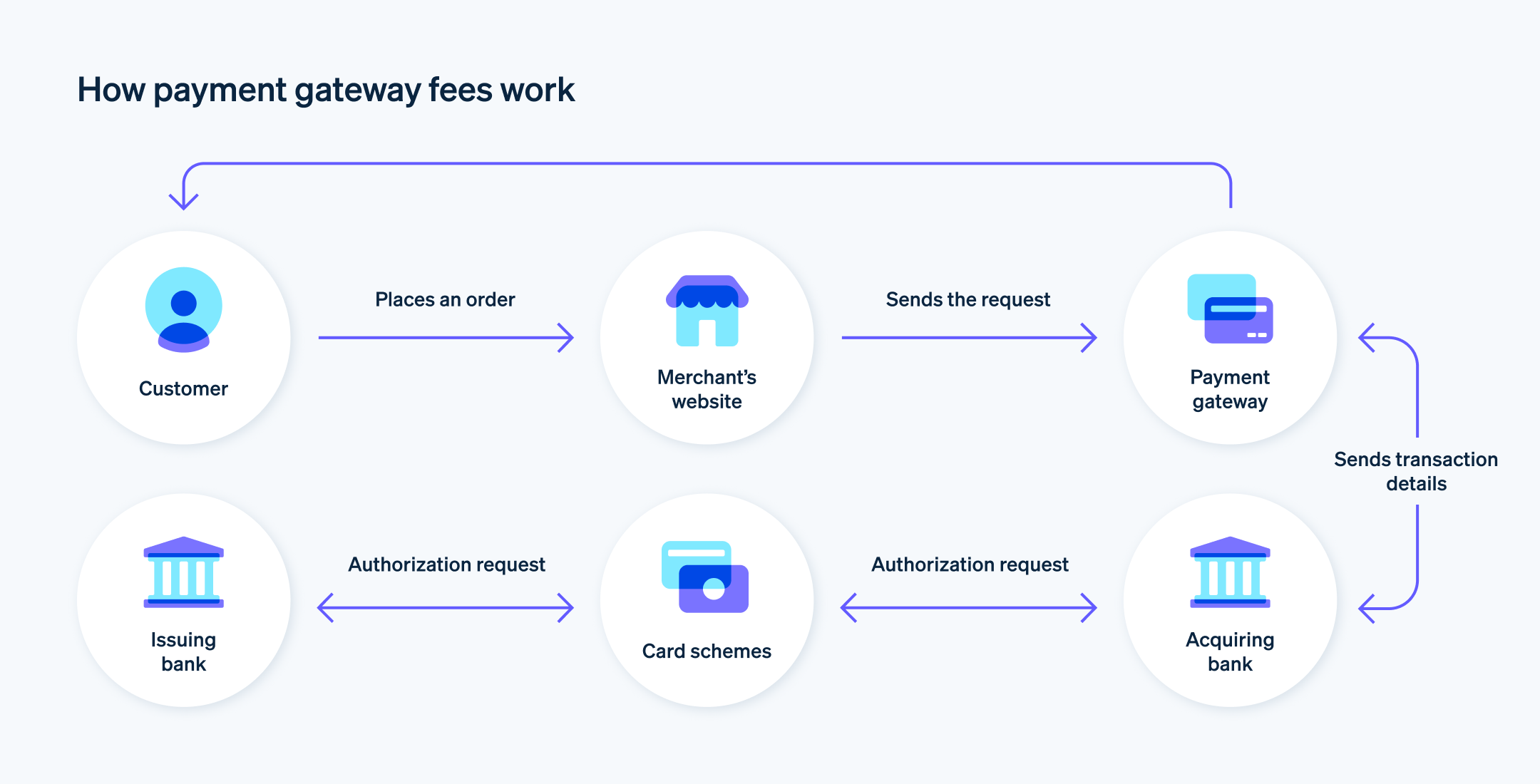对于任何处理线上交易 或接受电子支付 的企业来说,选择支付网关都是一个重要的考虑因素。企业选择支付网关 不仅决定了其面向客户和内部的支付体验,还决定了企业接受支付的费用。支付网关费用会对企业的整体盈利能力和成本结构产生重大影响:由于每笔交易都会产生成本,因此支付网关的选择 和相关费用会对净收入 产生重大影响。
随着企业的发展和规模的扩大,其交易量也会增加,这可能会扩大这些费用的影响。下面,我们将介绍使用 Stripe 的相关费用。这些费用可能会发生变化,因此当您准备开始搜索时,最好仔细检查每个供应商的费用。
目录
- 什么是支付网关?
- 什么是支付网关费用?
- Stripe 的支付网关费用
什么是支付网关?
支付网关是一种为网店和实体店处理信用卡交易 的服务。可以把它想象成您可能会在零售店中看到的销售点 (POS) 终端 的数字版本。当客户支付产品或服务费用时,支付网关会对敏感的支付信息进行加密,并在发卡银行 和企业银行之间发送,确保交易有效。支付网关充当中介,确保交易安全及时地进行。
对于任何想要接受信用卡 或直接付款的线上企业而言,支付网关都是必要的。这项技术可确保客户信息在企业 和支付处理商 之间传输时的安全,是电商交易 流程的关键组成部分。目前有多种选择,每种选择都有自己的特点,旨在满足不同企业类型的需求。此外,“到 2027 年”,全球数字支付交易额 预计将达到近 14.8 万亿美元,这凸显了对可靠支付网关日益增长的需求。

什么是支付网关费用?
支付网关费用是企业在使用支付网关服务 时产生的成本,特别是在处理信用卡交易 时。这些费用可以分为几种类型:
设置费
这是企业在首次在支付网关创建账户 时支付的一次性费用。该费用包括支付网关与企业销售系统的初始配置和集成。交易费用
每次处理交易时,支付网关都会收取此类费用。它们可以是每笔交易的固定金额,也可以是销售金额的百分比,有时两者兼而有之。这笔费用是对网关处理交易 的补偿。月费
有些支付网关向使用其服务的企业收取经常性月费,无论处理的交易数量多少。撤单费用
当客户对扣款提出异议并且交易被撤销时,企业可能会产生拒付 费用。该费用包括管理争议所涉及的行政工作。退款费
如果企业退款,某些网关可能会收取退款费。这笔费用包括将资金返还给客户的成本。PCI 合规费用
支付卡行业数据安全标准 (PCI DSS) 合规性对于处理信用卡交易的企业是强制性的。某些网关可能会收取维持此安全标准 的费用。终止费
如果企业决定在合同期限结束前取消其账户,则可能需要支付终止费。这将补偿网关提前终止服务协议的情况。杂费
支付网关可能会对额外服务收取其他费用,例如国际交易、货币兑换或使用高级欺诈保护 等高级服务。这些费用可能因支付网关而异。
不同的支付网关有自己的费用结构,企业通常会根据这些成本与其销售量和商业模式的一致性来选择服务。一些支付网关的交易费用可能较低,但收取较高的月费,因此更适合交易量较大的企业。另一些可能没有月费,但交易成本更高,这对于销量较低的企业来说可能更划算。
对于企业来说,仔细审查这些费用以确定最适合其特定情况的最具成本效益的解决方案非常重要。
Stripe 的支付网关费用
以下是 Stripe 针对各种支付处理服务向企业收取的费用清单:
交易费用
ACH 直接借记 交易
银行卡更新器:对于已保存的客户,Stripe 会自动更新过期或续订的银行卡信息,但需要付费。
Stripe 包括机器学习模型,以帮助提高具有自定义定价的账户的授权率。
即时提现
争议费用:这也称为拒付费用。
Stripe 不收取设置费或月费,并且没有与 Stripe 的标准定价模式相关的隐藏费用。
点击此处 了解详细的定价信息。
本文中的内容仅供一般信息和教育目的,不应被解释为法律或税务建议。Stripe 不保证或担保文章中信息的准确性、完整性、充分性或时效性。您应该寻求在您的司法管辖区获得执业许可的合格律师或会计师的建议,以就您的特定情况提供建议。